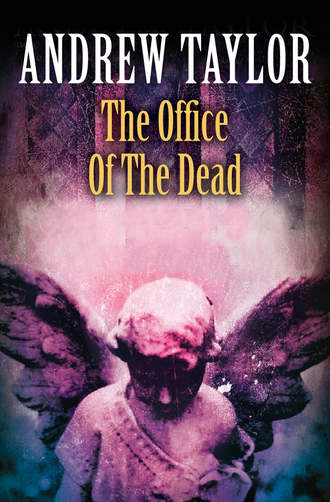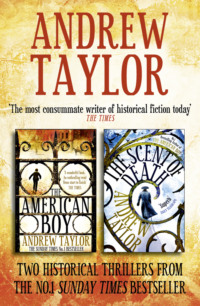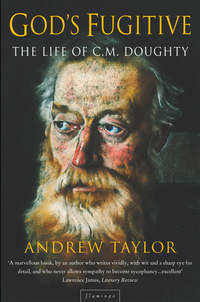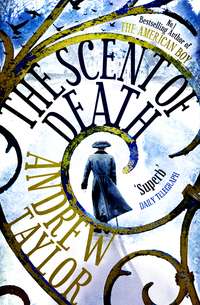
Полная версия
The Office of the Dead
‘You’d be surprised. It’s our duty to make the best use of our resources we can. But to go back to the books. One possibility is that we give some or all of them to another library, and yes, perhaps the one at the Theological College might be appropriate.’
I noticed he did not mention the possibility that the Theological College might close.
‘Or we may sell some or all of them. But we can’t really decide what to do until we know what we’ve got. There’s never been a complete catalogue, you see.’ He stood up and lifted down a heavy foolscap volume from a shelf. He blew off the dust and placed it on the table. ‘Dean Pellew’s original collection is listed in here. Just authors and titles, nothing more, and I’d be surprised if we’ve still got them all. And then over the years there’ve been one or two half-hearted attempts to record acquisitions as they were made. Some of them are in here.’ He tapped the book. ‘Others are in the filing cabinet by the door.’
Hudson sat down again. He took out a pipe, peered into its bowl and then put it back in his pocket. I wondered what he would pay me and whether it would be enough to allow me to stay on in Rosington. He was going bald on top. Next I wondered whether he and his wife were fond of each other, and what they were like when they were alone together. Her name was June. She was one of the few ladies in the Close who not only recognized me but said hello when we met.
‘Couldn’t you get someone from a bookshop to look at the books?’
‘We could. They would certainly do a valuation or us, I imagine. But we don’t even know if we want to sell them yet. And if we wanted a catalogue, we’d have to pay them to do it.’ He hesitated, and added, ‘There’s another reason why I’d like the books catalogued before we make up our minds what to do with them. There are a few oddities in the library. I’d like a chance to weed them out.’
‘What do you mean exactly?’
‘Apparently my predecessor found a copy of Mrs Beeton’s Household Management. One or two novels have surfaced as well. Perhaps my predecessors muddled up some of their own books with the library’s.’
‘Look, it’s very kind of you, but I still don’t think I’d be suitable. I’ve never done anything like this before.’
He beamed across the table. ‘Personally I’ve never found that a good reason not to do something.’
Hudson was persistent, even wily. He proposed I try my hand after lunch at half a dozen of the books under his supervision. If the results were satisfactory to me and to him then he suggested a trial period of a week, for which he would pay me three pounds, ten shillings. If we were both happy after this, the job would continue until the work was finished. All it needed, he said, was application and intelligence, and he was quite sure I had both of those.
The week passed, then another, then a third. It was easier to carry on with it than to try to explain to Hudson yet again why I wasn’t suitable. The money was useful, too. I worked methodically round the room, from bookcase to bookcase. I did not move any of the books except when reuniting volumes belonging to a set. I used five-by-three index cards for the catalogue. On each card I recorded the author, the title, the publisher and the date. I added a number which corresponded to the shelf where the book was to be found and I added any other points which seemed to me to be of interest such as the name of the editor, if there was one, or the name of the series or whether the book contained one of Dean Pellew’s bookplates, and had therefore been part of the original endowment.
It was surprisingly dirty work. On my first full day I got through several dusters and had to wash my hands at least half a dozen times. At Janet’s suggestion, I bought some white cotton dusting gloves.
I reserved a separate table for the books which were in any way problematical. One of these was Lady Chatterley’s Lover, which I found halfway through my second week sheltering in the shadow of Cruden’s Concordance. I flicked through the pages, feeling guilty but failing to find anything obscene. So I borrowed it to read properly, telling my conscience that it wouldn’t matter two hoots to Hudson if I found it today or next week.
I watched the cards expanding, inching across the old shoebox I kept them in until that shoebox was full and Canon Hudson found me another. My speed improved as I went on. The first time I managed to dust and catalogue fifty books in a single day, I went to the baker’s and bought chocolate eclairs. Janet and Rosie and I ate them round the kitchen table to celebrate the achievement. As time went by, too, I needed to refer fewer and fewer queries to Canon Hudson.
At first he came in once a day to see how I was getting on. Then it became once every two or three days or even longer. There was pleasure in that too.
‘You’ve got a naturally orderly mind, Wendy,’ he told me one day towards the end of April. ‘That’s a rarity.’
Henry would have laughed at the thought of me in a Cathedral Library. But the job was a lifeline at a time when I could easily have drowned. I thought it came to me because of the kindness of Canon Hudson, and because I happened to be in the right place at the right time. Years later I found out there was a little more to it.
It was in the early 1970s. I met June Hudson at a wedding. I said how much the job in the Cathedral Library had helped me, despite everything, and how grateful I was to her husband for offering it to me.
‘It’s Peter who was grateful to you, my dear. At one point he thought he’d have to catalogue all those wretched books himself. Anyway, if anyone deserves thanking it ought to be Janet Byfield.’
‘What do you mean?’
‘It was her idea. She had a word with me and asked if I would suggest you to Peter. She said she hadn’t mentioned it to you in case it didn’t come off. But I assumed she’d have said something afterwards.’
‘No,’ I said. ‘She never did.’
That increased my debt to Janet. I wish I knew how you pay your debts to the dead.
15
Then there was the business about the bishop’s invitation. It was delivered by hand through the letter-flap from the High Street while Janet and I were having tea in the kitchen. She ripped open the envelope, which had the arms of the see on the back, read the note from Mrs Bish and pushed it across the table to me. She had asked the Byfields to dinner.
‘That means he’s asked us,’ Janet explained. ‘David will be pleased.’
‘What’s he like?’
‘He was the Suffragan Bishop of Knightsbridge before he came here.’ Janet blushed as she usually did when she was going to say something unkind. ‘And some people say he was better at the Knightsbridge part than the bishop part.’
‘You mean he’s a snob?’
On that occasion she wouldn’t say more. But after meeting the bishop once or twice I knew exactly what she meant. Like so many people in those days, he secretly felt that the Church should be a profession confined to gentlemen. His chaplain was a young man named Gervase Haselbury-Finch, who looked like Rupert Brooke and had a titled father, qualifications which as far as the bishop was concerned made up for his lack of organizational abilities. I don’t mean to imply there was anything improper about the bishop’s behaviour, not in the sense that makes tabloid headlines. He was married and had three grown-up children.
‘The bishop likes to have little chats with David,’ Janet went on. ‘He says things like, “I’m expecting great things of you, my boy.” He’s very much in favour of keeping the Theo. Coll. going and he thinks that David would make a marvellous principal. So that’s something in our favour. A very big something.’
‘Is that how they choose someone?’ I said. ‘Because the bish likes their face?’
‘Well, there’s more to it than that. Obviously. But it helps.’
‘It’s not exactly fair.’
She made a sour face. ‘The Church isn’t. Not always.’
‘It’s like something out of the Middle Ages.’
‘That’s exactly what it is. You can’t expect it to behave like a democracy.’
Later that evening we discussed the invitation over supper. David already knew about it because he had met the bishop at evensong. The only other people invited were the Master of Jerusalem and his wife. It turned out that the bishop had been at Jerusalem College too.
‘I haven’t anything to wear,’ Janet said.
‘Of course you have.’ David smiled at her. ‘Wear what you wore for the Hudsons. You’ll look lovely.’
‘I always wear that.’
‘They’ll notice your face not your dress.’
‘Your mother had a very pretty dress at our engagement party,’ Mr Treevor put in. ‘I wonder if she’s still got it. Why don’t you ask her? Are there any more baked beans?’
Afterwards David took his coffee to the study and Mr Treevor went upstairs. Janet shook a small avalanche of powdered Dreft into the sink and turned on the tap so hard that water sprayed over the front of her pinafore and on to the tiled floor.
‘What’s up?’ I said.
‘It’ll be ghastly. They’ll make me feel like a poor little church mouse. I can never think of anything to say to the bishop. He pretends I must be frightfully intellectual because he’s read some of Mummy’s translations. So he tries to have conversations about the theme of redemption in Dostoevsky’s novels and the irrationality of existentialism. It’s dreadful. Meanwhile the women look at my shoes and wonder why they clash with my handbag.’
‘Don’t go,’ I said.
‘I’ve got to. David will be so upset if I don’t. The bishop wants me to come, you see, and the bishop’s word is law. And what about you?’
‘Don’t worry about me. I’d much rather stay at home.’
I hadn’t been included in the invitation – I’m not sure the bish knew of my existence, not then. This suited me very well. Someone had to keep an eye on Rosie and Mr Treevor. Anyway, in my bedroom I had the bottle of gin and the unexpurgated Lady Chatterley’s Lover. What more could a girl want?
‘I suppose I could wear my blue dress. But there’s that stain on the shoulder.’
‘You can borrow my shawl if you like.’
In the end, though, Janet didn’t go after all. On the day of the dinner party she developed a migraine. She had had them occasionally since we were children, usually when under strain. When I came back for lunch and found her flat out on the sofa, I made her go to bed and arranged to collect Rosie from school. David came in later, with just time to bathe and change before going out again. I told him what had happened, and said there was no chance that Janet would be well enough to go out to dinner.
‘I’ll go up and see her,’ he said. ‘Perhaps she’s feeling better.’
‘She’s not. And if you try and persuade her she is feeling better, it’ll only make her feel worse.’
‘That’s plain speaking.’
I sensed the anger in him. I even took a step backwards and felt the edge of the hall table pushing into the back of my thigh. ‘That’s what we do up in Yorkshire, David. Honestly, I don’t mean to be rude, but I know what she’s like when she has these migraines. And this one’s a stinker.’
‘I’ll go and see her now.’
‘But please let her stay in bed.’
He stared at me. There was so much anger in his face now that just for a moment I was frightened, physically frightened. He could strangle me now, I thought, and no one could stop him.
‘I’ll see how she is,’ he said in a tight voice.
‘While you’re upstairs, perhaps you could say good night to Rosie. She was asking after you earlier.’
The jab went home. I saw it in his face. He went upstairs without another word. I felt guilty because I had been unkind to him and angry for being scared. I tend to attack when I feel defensive. I told myself that it wasn’t as if he didn’t deserve what I’d said about Rosie. David knew, and I knew, that Janet thought he should try to spend a little more time with her. He doted on her as he doted on Janet. But he was a busy man, convinced of the importance of what he was doing and in his heart of hearts he was a complete reactionary. Looking after children was something that you left to women. That was what they were for, along with the other marital duties which he probably assumed had been ordained by God and man since time immemorial. I wonder now if David was a little scared of young children. Some adults are.
The upshot of that was that Janet didn’t go to dinner with David and David didn’t say good night to Rosie. I went up later after he had left the house and found Rosie still awake.
‘Your light shouldn’t be on,’ I said.
She stared at me without saying anything. She was a child who knew the power of silence.
‘What are you reading?’
Rosie angled the book towards me. It was a big illustrated volume called Tales from the New Testament, an impeccable choice for a clergyman’s daughter. It was open at one of the colour plates. The picture showed the Angel Gabriel talking to the Virgin Mary. The caption read, ‘Hail, thou that art highly favoured, the Lord is with thee: blessed art thou among women.’
She looked up at me with bright, excited eyes. ‘He looks like Daddy. The angel looks like Daddy.’
‘I suppose he does a bit, yes. Except the angel’s got fair hair and it’s rather long.’ I tried to make a joke of it. ‘And, of course, Daddy doesn’t wear a white dress or have wings.’
‘He sometimes wears a sort of white dress in church.’
‘Yes, I’m sure he does.’
‘Grandpa said he saw an angel.’
‘What?’
‘He told me. He looked out of his window and there the angel was, walking in the garden.’
‘How interesting. Now, why don’t I read you a story, just a quick one, and then you can settle down?’
I read her the story of the feeding of the five thousand, which I chose on the grounds that it was short and contained no angels whatsoever. Some children like to sit with you, or on you, while you read to them. Rosie preferred me to sit in the chair by the window. She said it was so she could watch my face.
Later, when the story was over, I tucked her up and kissed the top of her head.
‘Auntie Wendy?’
‘What?’
‘Was Lucifer an angel?’
‘I don’t know.’
‘He’d be a sort of naughty angel. A wicked one who lives in hell.’
‘You’ll have to ask Daddy. He’ll know.’
‘Yes,’ Rosie said. ‘He knows all about God and things like that.’
Mr Treevor had settled into his new home surprisingly quickly. As long as there were no major deviations from the routine he had established he seemed quite content. Janet worried that he might try to repeat his mock-suicide attempt but there were no more incidents like that. (Janet asked him on several occasions why he’d done it. Twice he said it was a joke to amuse Rosie. Once he couldn’t remember doing it at all. And the last time he said it was to see how much people loved him.)
If anything Rosie rather liked him. Perhaps it was because he was the nearest available man in the absence of a father. Sometimes he would go and say good night to her and an hour or so later Janet would find them both asleep, Rosie in bed and Mr Treevor in the armchair by the window. It was rather touching to see them together, asleep or awake. They didn’t communicate much and they made few demands on each other, but they seemed to enjoy being in the same room.
The next day when the migraine had subsided, I told Janet what Rosie had said.
‘An angel? Daddy must have been dreaming.’
‘Most people settle for gnomes in the garden. I think an angel’s rather classy.’
‘Perhaps it was the milkman. He usually wears a white coat.’
‘But he doesn’t come to the garden door.’
‘Daddy’s getting a bit confused, that’s all,’ Janet said. ‘Dr Flaxman said this might happen.’
Nowadays they would be able to narrow it down and perhaps delay the dementia’s progress with drugs. Mr Treevor could have had a relatively early onset of senile dementia, either Alzheimer’s or Multi-Infarct Dementia. Alzheimer’s can be a pre-senile dementia as well. He wasn’t a drinker so it can’t have been alcoholic dementia. Other dementias can be caused by pressure in the brain, perhaps from a tumour, or by rare diseases like Huntington’s or Pick’s. But Pick’s and Huntington’s usually start when their victims are younger. If it was Huntington’s it would have shown up when Rosie had the tests when she was an adult, even if she was not a carrier. The other main dementias, Creutzfeldt-Jakob disease and Aids dementia, developed later than 1958.
The worst thing, Janet said, was he knew what was happening. Not very often, but sometimes. He wasn’t a fool by any means. And occasionally he was capable of acting completely rationally. That was why we took the story of the robbery seriously.
It happened while he was alone in the house. David and I were at work. Janet had gone to collect Rosie from school. When they got back they found Mr Treevor in a terrible state, trying to phone the police.
According to him, he had been dozing in his room when he heard somebody moving around downstairs. Thinking it was Janet, he had gone on to the landing and called downstairs, asking when tea would be ready. He heard footsteps, and the garden door slam. He looked out of the window and saw a man walking quickly down the garden and through the gate into the Close.
Конец ознакомительного фрагмента.
Текст предоставлен ООО «ЛитРес».
Прочитайте эту книгу целиком, купив полную легальную версию на ЛитРес.
Безопасно оплатить книгу можно банковской картой Visa, MasterCard, Maestro, со счета мобильного телефона, с платежного терминала, в салоне МТС или Связной, через PayPal, WebMoney, Яндекс.Деньги, QIWI Кошелек, бонусными картами или другим удобным Вам способом.








